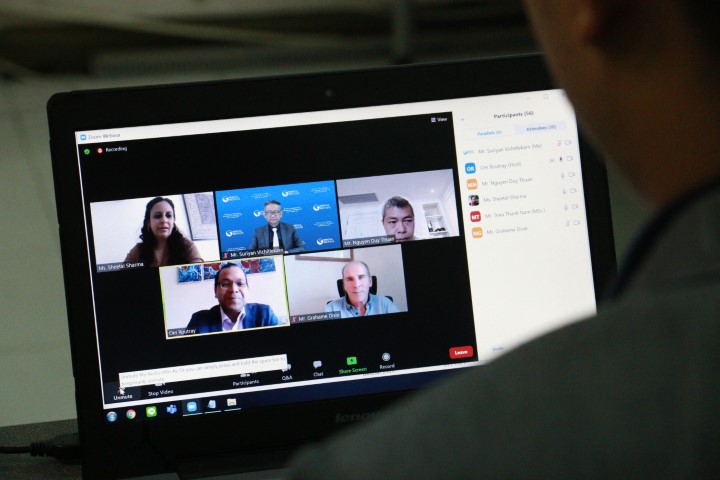“Regional economic corridors present opportunities in scaling up digital technology for inclusive and sustainable agriculture.” This was the driving message of Mr. Suriyan Vichitlekarn, MI Executive Director, during the webinar on “Impacts of Digital Technologies on Food Trade in Southeast Asia” on October 7, 2020.
Hosted by SourceTrace and the International Rice Research Institute (IRRI), the discussion was designed to raise awareness about how digital technologies can make more efficient the management of food and agricultural products, particularly in the time of the COVID-19 pandemic.
In the Greater Mekong Subregion, agriculture serves as the backbone of members countries’ economies. With over 60 percent of the subregion’s population engaged in small-scale agriculture, it directly supports the livelihood of nearly 200 million people.
Mr. Suriyan, who was one of four speakers of the event, highlighted that through support from regional mechanisms, digitalized trade facilitation of agri-food products can help reduce trade barriers, lower transaction costs, foster efficiency along the supply chains, and reduce poverty.
In addition, he underscored how policies on investments in digital infrastructure and networks, as well as capacity-strengthening initiatives of farmers’ groups in digital technology adoption, including e-commerce, can create competitive and inclusive agricultural value chains.
“There are many applications such as digital payment systems,” said Mr. Grahame Dixie, Executive Director of Grow Asia, who was also a speaker at the event, “but we need to focus on making it accessible and usable for all stakeholders in the agricultural chain, particularly smallholder farmers so they, too, can compete in local and regional markets.”
Mr. Suriyan supported the statement, adding that linking public-private partnerships can also foster technology matching services to bridge the digital divide.
Ms. Sheetal Sharma, Soil Scientist of IRRI, and Mr. Nguyen Duy Thuan, General Manager of the Loc Troi Group, also participated in the webinar. Each highlighted the need to increase the participation of women’s groups and the youth in agriculture, as well as capacity building activities to broaden access of digital technology across all sectors in the value chain.








